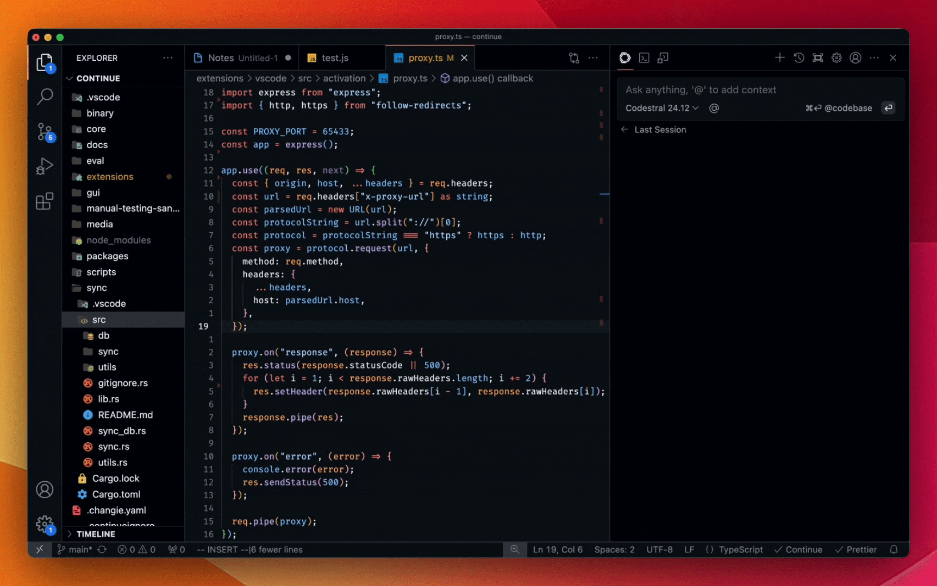This week we saw a couple of headlines serving as a reminder that, for all the excitement surrounding generative AI and other less flashy forms of artificial intelligence, some aspects continue to be the subject of intense debate and disagreement, often dividing the parties with a stake on the issue into radically opposing sides. Unfortunately, many of those topics revolve around laws and regulations. Moreover, it is no coincidence that those developing the models and scraping the training data often claim that regulation is unnecessary or overly complex and, if applicable, that they've done no wrong.
Case in point, Meta and Spotify joined forces this week to publish an op-ed where Meta founder and CEO Mark Zuckerberg and Spotify founder and CEO Daniel Ek express their concerns surrounding the European regulatory landscape. The bulk of the claim is that Europe risks falling behind in the race to profit from the potential unlocked by open-source AI because of its overly complex and inconsistently applied regulations. The only provided evidence is a revisit of the fact that Meta has had to pause training its models on European Meta users' data, with the devastating effect that the company will not be releasing its multimodal foundation model in Europe.
Meanwhile, others at risk of having their jobs replaced by AI or their work used without appropriate attribution and compensation continue to look for ways to fight, or at least tip the scales to make the situation fairer. Such is the case of Condé Nast, as the publisher recently entered one of those seemingly unavoidable licensing agreements with OpenAI. In stark contrast, a new class action lawsuit has been filed in California, this time against Anthropic, as three authors claim the company used a dataset containing pirated versions of their works and thousands of others to train its models.
Still, the generative AI race shows no signs of stopping, even more so now that visual media generation seems to be the next frontier. Following weeks of new releases, this time it was Ideogram who announced the release of its next-generation Ideogram-2. At the same time, Meshy, the platform specializing in 3D model generation, announced the launch of the Meshy-4 model along with several updates to its platform. Moreover, the adoption of generative AI-produced visuals seems on the rise: The Weeknd debuted a teaser trailer created with the help of media generation platforms Google Veo, Midjourney, and Luma Dream Machine, joining a growing group of music artists who have started experimenting with AI-generated visuals.
Other relevant headlines this week:
Reliant AI launches AI-powered analytics for the life sciences with $11.3M in seed funding: Reliant AI, a new generative AI-powered data analytics provider, has launched its first product Reliant Tabular to help the biopharma industry quickly find scientific evidence and accelerate decision-making, backed by $11.3 million in seed funding from Tola Capital and Inovia Capital.
Logically acquired Insikt AI to continue fighting harmful content online: Logically, a leading provider of AI solutions to combat harmful online content has acquired Insikt AI to bolster its research and development capabilities, expand its technology portfolio, and deliver a competitive advantage to customers in tackling a broader range of online threats.
SleekFlow secured $7M in funding to expand its market presence and AI innovation: SleekFlow, a Singapore-based provider of AI-powered customer engagement solutions, has secured $7 million in Series A+ funding to accelerate its global expansion, enhance its AI technology, and develop fully automated sales and support journeys across various communication channels.
Skyfire has launched a first-of-its-kind payment network for AI agents: Skyfire Systems Inc., founded by former Ripple executives, has raised $8.5 million to develop infrastructure enabling AI agents to make autonomous payments, focusing on secure wallet access, verified identity services, and an open payment protocol.
NVIDIA showcased its pruning and distillation techniques with Llama-3.1-Minitron 4B: NVIDIA researchers have developed a breakthrough technique combining structured weight pruning and knowledge distillation to create smaller, more efficient language models, which offer improved performance and significant compute savings while remaining competitive with larger models.
Opkey raised $47M to revolutionize ERP testing with AI: AI-powered software testing company Opkey has secured $47 million in funding to enhance and expand its technology that uses artificial intelligence to streamline and improve the risky process of updating crucial business software systems.
Dropbox has acquired the AI-powered calendar assistant Reclaim.ai: Reclaim.ai, an intelligent scheduling assistant that optimizes users' calendars by automatically managing time blocks for activities and facilitating smart scheduling of recurring meetings, announced its plans to continue developing its product after being acquired by Dropbox.
BeyondMath secured $8.5 million for the development of its digital wind tunnel: BeyondMath's digital wind tunnel uses machine learning to provide near real-time simulations of complex aerodynamics, significantly accelerating the engineering process and cutting costs. The company boasts F1 as an early adopter and recently raised an $8.5M seed round led by UP.Partners.
Harmonyze secured $2M to transform franchise operations with AI: AI startup Harmonyze has secured over $2 million in pre-seed funding to expand its AI-powered platform that automates and streamlines franchise operations, potentially transforming the $5 trillion global franchise market by increasing efficiency and profitability.
Piramidal raised $6M to build the world's first human brainwaves foundation model: Piramidal, a healthcare AI startup, is developing a groundbreaking foundation model for EEG data that will unlock a series of use cases in medical settings, from assisting in diagnosing neurological conditions to supporting the discovery of biomarkers for drug and treatment development.
With its latest update, Redis aims to solidify its position as a vector database for AI use cases: Redis has unveiled a suite of AI-focused products, including Redis for AI, Redis Copilot, and enhanced vector database capabilities in Redis 8, aimed at simplifying and accelerating the development and deployment of GenAI applications.





Comments